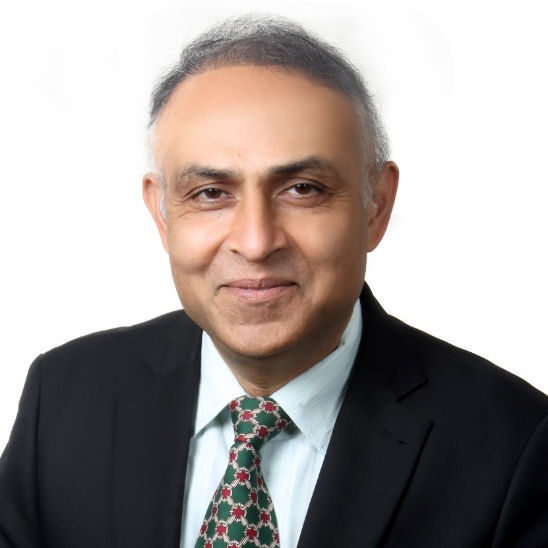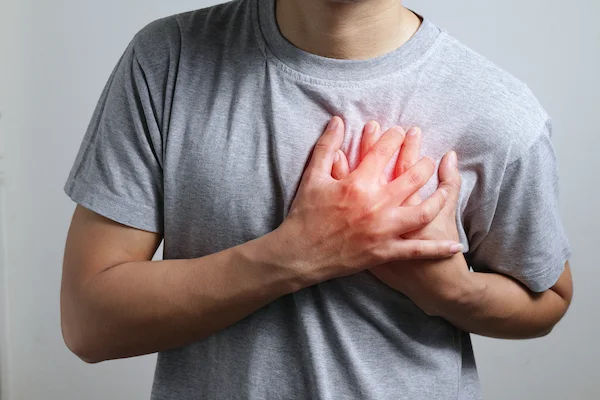Guide to Heart Health Understanding and Managing Cardiovascular Disorders
Learn how to understand, prevent, and manage cardiovascular disorders. Discover symptoms, risk factors, lifestyle tips, and treatment options to protect your heart.


Introduction
Cardiovascular disorders (CVDs) remain the leading cause of death globally, but here’s the crucial fact many people miss: most are preventable. The term "cardiovascular disorders" can sound intimidating, often conjuring images of emergency situations. However, understanding these conditions is the first and most powerful step toward taking control of your heart health. This guide is designed to demystify CVDs, moving beyond fear to provide you with actionable knowledge. We will walk you through what these disorders are, how to spot their early warning signs, and the practical steps you can take to reduce your risk significantly. Whether you're looking to make proactive lifestyle changes or better understand a recent diagnosis for yourself or a loved one, this comprehensive resource will equip you with the essential information you need to navigate the path to a healthier heart. Knowledge is power, especially when it comes to the complex world of cardiovascular disorders.
What Are Cardiovascular Disorders? A Broad Overview
At its core, the term cardiovascular disorders refers to a class of diseases that involve the heart or blood vessels (arteries, veins, and capillaries). Think of your cardiovascular system as your body's intricate delivery network. The heart is the pump, and the blood vessels are the pipes. A problem anywhere in this system can have widespread consequences.
The Spectrum of Heart and Blood Vessel Conditions
Cardiovascular disease isn't a single condition but an umbrella term for a range of issues. The most common include:
• Coronary Artery Disease (CAD): This is the most prevalent type of heart disease. It occurs when the major blood vessels (coronary arteries) that supply the heart with blood, oxygen, and nutrients become damaged or diseased, usually due to plaque buildup (atherosclerosis).
• Heart Attack (Myocardial Infarction): This is a critical emergency that happens when blood flow to a part of the heart is blocked, often by a blood clot, causing heart muscle to die.
• Stroke: A stroke occurs when blood flow to part of the brain is interrupted or reduced, preventing brain tissue from getting oxygen and nutrients. This can be caused by a blocked artery (ischaemic stroke) or a leaking or burst blood vessel (haemorrhagic stroke).
• Heart Failure: Often misunderstood, this doesn't mean the heart has stopped working. It means the heart muscle isn't pumping blood as well as it should, leading to fatigue, shortness of breath, and fluid buildup.
• Arrhythmia: This is an irregular heartbeat—it can be too fast (tachycardia), too slow (bradycardia), or simply irregular. While some arrhythmias are harmless, others can be serious.
Consult a Cardiologist for the best advice
Recognising the Warning Signs: Symptoms of Common Cardiovascular Disorders
Early recognition of symptoms can be life-saving. Symptoms vary depending on the specific condition but often share common themes. It's vital to listen to your body.
Heart Attack Symptoms: More Than Just Chest Pain
While chest pain, pressure, or tightness is a classic sign, a heart attack can present differently, especially in women. Symptoms include:
• Pain in the jaw, neck, back, or one or both arms.
• Shortness of breath.
• Cold sweat, nausea, or lightheadedness.
• Unusual fatigue.
Signs of a Stroke (Remember F.A.S.T.)
Acting F.A.S.T. is crucial for a stroke. Use this simple acronym:
• Face: Ask the person to smile. Does one side of the face droop?
• Arms: Ask them to raise both arms. Does one arm drift downward?
• Speech: Ask them to repeat a simple phrase. Is their speech slurred or strange?
• Time: If you observe any of these signs, call emergency services immediately.
Symptoms of Heart Failure and Arrhythmias
Heart failure often develops slowly. Watch for:
• Shortness of breath during activity or when lying down.
• Fatigue and weakness.
• Swelling (oedema) in the legs, ankles, and feet.
• Rapid or irregular heartbeat.
• Arrhythmias might feel like a fluttering, racing, or slow heartbeat in your chest (palpitations). You might also feel dizzy or short of breath.
The Root Causes: What Puts You at Risk?
Understanding risk factors is key to prevention. They are generally divided into two categories.
1. Non-Modifiable Risk Factors (What You Can't Change)
• Age: The risk of damaged and narrowed arteries increases as you get older.
• Sex: Men are generally at greater risk, though a woman's risk increases after menopause.
• Family History: A family history of heart disease increases your risk, especially if a parent developed it at an early age.
2. Modifiable Risk Factors (What You Can Control)
This is where you have the most power. Key factors include:
• Smoking: Nicotine damages blood vessels.
• Poor Diet: Diets high in fat, salt, sugar, and cholesterol contribute to artery disease.
• High Blood Pressure: This can harden and thicken arteries, narrowing the vessels.
• High Cholesterol: High levels of "bad" (LDL) cholesterol can lead to plaque buildup.
• Diabetes: Diabetes significantly increases the risk of various cardiovascular disorders.
• Obesity: Excess weight typically worsens other risk factors.
• Physical Inactivity: Lack of exercise is associated with many forms of heart disease.
How Are Cardiovascular Conditions Diagnosed?
If you experience symptoms or have risk factors, a doctor will use various tests. If symptoms like chest pain or palpitations persist, consult a doctor online with Apollo24|7 for an initial evaluation.
Common diagnostic tools include:
• Electrocardiogram (ECG/EKG): Records the heart's electrical activity.
• Echocardiogram: An ultrasound of the heart that shows its structure and function.
• Stress Test: Monitors your heart while you exercise on a treadmill or stationary bike.
• Cardiac Catheterisation (Angiogram): A thin tube is threaded through a blood vessel to the heart to check for blockages.
• Blood Tests: To check for enzymes released during a heart attack or for cholesterol and blood sugar levels. Apollo24|7 offers a convenient home collection for tests like lipid profile or HbA1c, making it easier to monitor your risk factors.
Common Tests: From ECG to Advanced Imaging
These tests help paint a complete picture of your heart's health, allowing for an accurate diagnosis and a personalised treatment plan.
Get Your Health Assessed
Treatment Pathways: Managing and Overcoming Heart Disease
Treatment depends on the specific condition but often involves a combination of approaches.
Lifestyle Modifications as the First Line of Defence
This is the cornerstone of treatment and prevention. It includes adopting a heart-healthy diet (like the Mediterranean diet), regular aerobic exercise, quitting smoking, and managing stress.
Medications for Heart Health
Many drugs are available, such as:
• Statins to lower cholesterol.
• Beta-blockers to reduce blood pressure and heart rate.
• Aspirin to prevent blood clots.
• ACE inhibitors to treat heart failure and high blood pressure.
Surgical Procedures and Interventions
For more advanced conditions, procedures may be necessary:
• Angioplasty and Stenting: A blocked artery is opened, and a small mesh tube (stent) is placed to keep it open.
• Coronary Artery Bypass Grafting (CABG): Surgeons create a new pathway for blood to flow around a blocked coronary artery.
• Pacemaker: A small device implanted to help control abnormal heart rhythms.
Prevention is Power: How to Keep Your Heart Healthy
The most effective strategy against cardiovascular disorders is prevention. It's never too early or too late to start. These simple lifestyle choices can go a long way in protecting your heart:
1. Don't Smoke or Use Tobacco: This is the single most important change you can make.
2. Move More: Aim for at least 30 minutes of moderate exercise most days of the week.
3. Eat a Heart-Healthy Diet: Focus on fruits, vegetables, whole grains, lean proteins, and healthy fats. Limit salt, sugar, and processed foods.
4. Maintain a Healthy Weight: Losing even a small amount of weight can help.
5. Get Quality Sleep: Poor sleep can increase the risk of heart disease.
6. Manage Stress: Find healthy outlets like yoga, meditation, or talking to a friend.
7. Get Regular Health Screenings: Regularly check your blood pressure, cholesterol, and blood sugar levels.
Conclusion
Navigating the world of cardiovascular disorders can seem daunting, but it's a journey you don't have to take alone. By understanding the conditions, recognising the signs, and knowing your personal risk factors, you move from a place of fear to a position of empowerment. Remember, small, consistent steps toward a healthier lifestyle—like choosing a brisk walk over the couch or a piece of fruit over a sugary snack—add up to significant long-term benefits for your heart. Your heart health is one of your most valuable assets. Prioritise it by making informed choices, seeking professional guidance when needed, and committing to a heart-healthy life. Start today; your future self will thank you for it.
Consult a Cardiologist for the best advice
Consult a Cardiologist for the best advice

Prof. Dr. Vivek Gupta
Cardiologist
25 Years • MD, DM, FESC, FEAPCI, FAPSIC,FCSI, FICC, FIC France, FIEIC, FSCAI
Delhi
Apollo Hospitals Indraprastha, Delhi
Dr. Diganta Buragohain
Cardiologist
1 Years • "DM (Cardiology) in 2025 from NEIGRIHMS, Shillong MD (General Medicine) in 2020 Gauhati Medical College, MBBS in 2015 from Gauhati Medical College,"
Guwahati
Apollo Excelcare Hospital, Guwahati

Dr.t . Naveen
Cardiologist
5 Years • MBBS(OSMANIA),MD MEDICINE (AIIMS , NEW DELHI) , DM(Jayadeva ,Banglore)
Hyderabad
Apollo Clinic, A.S.Rao Nagar, Hyderabad

Dr. Monik Mehta
Cardiologist
38 Years • MBBS, MD, DM (Cardiology), FACC (Fellow of American College of Cardiology), Fellowship (Cardiac Electrophysiology)
Gurugram
APOLLO SUGAR CLINICS GURUGRAM, Gurugram

Dr. Zulkarnain
General Physician
2 Years • MBBS, PGDM, FFM
Bengaluru
PRESTIGE SHANTHINIKETAN - SOCIETY CLINIC, Bengaluru
Consult a Cardiologist for the best advice

Prof. Dr. Vivek Gupta
Cardiologist
25 Years • MD, DM, FESC, FEAPCI, FAPSIC,FCSI, FICC, FIC France, FIEIC, FSCAI
Delhi
Apollo Hospitals Indraprastha, Delhi
Dr. Diganta Buragohain
Cardiologist
1 Years • "DM (Cardiology) in 2025 from NEIGRIHMS, Shillong MD (General Medicine) in 2020 Gauhati Medical College, MBBS in 2015 from Gauhati Medical College,"
Guwahati
Apollo Excelcare Hospital, Guwahati

Dr.t . Naveen
Cardiologist
5 Years • MBBS(OSMANIA),MD MEDICINE (AIIMS , NEW DELHI) , DM(Jayadeva ,Banglore)
Hyderabad
Apollo Clinic, A.S.Rao Nagar, Hyderabad

Dr. Monik Mehta
Cardiologist
38 Years • MBBS, MD, DM (Cardiology), FACC (Fellow of American College of Cardiology), Fellowship (Cardiac Electrophysiology)
Gurugram
APOLLO SUGAR CLINICS GURUGRAM, Gurugram

Dr. Zulkarnain
General Physician
2 Years • MBBS, PGDM, FFM
Bengaluru
PRESTIGE SHANTHINIKETAN - SOCIETY CLINIC, Bengaluru
More articles from Cardiovascular Emergencies
Frequently Asked Questions
1. What is the difference between a heart attack and cardiac arrest?
A heart attack is a circulation problem caused by a blockage in an artery to the heart. Cardiac arrest is an electrical problem where the heart suddenly stops beating unexpectedly. A heart attack can lead to cardiac arrest.
2. Can you reverse heart disease?
While you can't completely 'cure' conditions like coronary artery disease, you can often halt its progression and even reverse some of the plaque buildup through aggressive lifestyle changes and medication under a doctor's supervision.
3. What are the early signs of heart disease that I shouldn't ignore?
Early warning signs can include unusual fatigue, shortness of breath with mild exertion, chest discomfort (pressure, squeezing, or pain), palpitations, and swelling in the feet and ankles.
4. How often should I get my heart checked?
If you have no risk factors, a baseline check in your 20s followed by regular screenings every 4-6 years is reasonable. After 40, or if you have risk factors, your doctor will recommend more frequent checks, typically every 1-2 years.
5. Is heart disease hereditary?
A family history of early-onset heart disease is a significant risk factor. However, this doesn't mean it's your destiny. It means you should be more vigilant about controlling modifiable risk factors like diet, exercise, and smoking.



